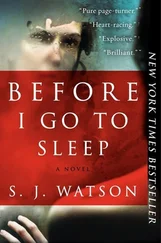The bar room was long and dim and its air held the coolness of old stone. Lamps gleamed in the corners farthest from the window. Their soft yellow light—implying, one felt, a comfortable independence of time—was reflected from the black knuckles and sinews of oak furniture.
As Miss Teatime entered, the landlord rose from the company of his only three customers and stepped behind the bar. He was a big, sorrowful looking man whose Fair Isle pullover was rucked in wavelets from an unsuccessfully belted paunch. The quartet had been playing dominoes and the landlord clicked face down on the counter the hand of half a dozen pieces that had been nestling in his left palm. As soon as he had measured out her double whisky and her change, he retrieved the dominoes by pressing upon them the flat of his hand, and went back to the game.
Miss Teatime took a seat at a nearby table and for a while looked on with a benevolent eye. At the next interlude for the recharging of glasses, she rose and approached with modest hesitation.
“I wonder if I might sit and watch you for a while? I’ve always wanted to see how this game is played.”
There was a murmur of slightly embarrassed but respectful assent, and two of the players hutched along their bench to make room for her.
She sat primly beside a man in blue serge whose smile of assurance was somewhat marred by a cast in one eye. This gave the feeling of there being someone behind her shoulder and with whom the man was in confidential communication. However, as play progressed the conversation warmed again and Miss Teatime soon found herself included.
She was impressed by the rapid calculation of which these people so obviously were capable. Their power of divination was perhaps even more remarkable. But most of all she marvelled at the way each could hold ten, twelve, fourteen “cards” in one perfectly secure palmful.
Two more games had been played and fresh drinks brought in. The ivory tablets swirled and rattled in another shuffle. Hands reached out to divide them.
“I wonder,” quickly said Miss Teatime, “if I...”
They looked at her.
“What I mean is, would it spoil your game terribly if I had a go? I think I can see how it’s played.”
There was a moment’s silence. The landlord glanced at the others. “All right,” he said. “You have a try, duck.” He slid a helping of cards towards her.
Happily, Miss Teatime began to pick them up and to build a little crescent shaped wall. “I haven’t quite such big hands as you gentlemen,” she explained.
“You just suit yourself, pet,” the cast-eyed man told her. “I’ll not look at them.” Oddly enough, that appeared to be exactly what he was doing at that moment, but Miss Teatime had been too well brought up to view uncharitably the afflictions of others.
“Right, then,” said the landlord. “Your drop, Jack.”
“Oh, there is one thing,” Miss Teatime announced, “that I really must insist upon.” She gave a nervous smile. “There can be no question of my not ‘taking my corner’, as I think you describe it. Pints—that’s right, isn’t it? And if I should win...oh, but that’s hardly likely!”
“Whisky it’ll be if you do,” gallantly asserted the landlord.
Miss Teatime blushed. “But just a single. Naturally.”
The play began.
Two hours later, when the irrefutable fact of closing time (The Saracen’s Head not being, after all, in another world) lay heavy upon the rest of the company, Miss Teatime was brighter than they by nine glasses of spirits. The mastery of dominoes, like that of anything else, simply called for a certain knack. She was pleased, but not arrogant at her success in having discovered it among her reserve talents.
The landlord climbed ponderously to his feet, stretched, and stood looming over them.
“Glasses, if you please,” he intoned.
“It’s not time yet,” said the man called Jack.
Miss Teatime smiled mischievously into her tenth glass of whisky. “Old crusty crutch!” she said. Jack laughed and nudged her.
“It’s three o’clock,” affirmed the landlord.
Miss Teatime ostentatiously consulted her dress watch. “Two minutes to,” she corrected.
The man with the odd vision stared at a vase of flowers in the window in order to see the clock on the wall of a building across the street. “That’s right,” he said. “Two minutes to go yet.” He turned and the landlord received, by proxy, as it were, the gaze of admiration intended for Miss Teatime.
“He’s mean with his bloody minutes, is old Fred,” declared the third customer. Jack noisily concurred and nudged Miss Teatime again.
She grinned, then suddenly adopted an expression of prim disapproval.
“My considered opinion of old Fred,” she said carefully, “is that he would twist the skin off a fart.”
In the C.I.D. room at Flaxborough Police Station, Inspector Purbright and his sergeant conferred. Neither felt that he had gathered anything useful, but the fleeting appearance, ten minutes before, of the Chief Constable in the doorway with his “Found those ladies yet?” could not be ignored. He had looked a bit like the ghost of Hamlet’s father.
“I’ll bet Spain’s been on to him,” Purbright said. “It’s from Spain that he gets the meat for those tree rats of his.”
Love, who had been twice bitten by Mr Chubb’s Yorkshire terriers, agreed. Any man who would knowingly supply provender for such creatures was quite capable of putting pressure on a chief constable.
Purbright glanced through the file, which now combined what information they had about both Miss Reckitt and Mrs Bannister. There were also five specimens of handwriting, none of which bore close resemblance to the three “Rex” letters, although the experts had expressed tantalizing doubts about Mr Rusk’s O’s and the T-crossing of Mr Rowley of Leicester Avenue.
“I’d like it to be Rusk,” Purbright admitted, “but I’m quite sure he’s in the clear. For one thing, the impersonation of charm is unquestionably beyond him. For another, he’s far too convinced of his literary professionalism to be able to pretend that he is a successful author, as women like Mrs Bannister would understand the term. Mr Rusk might invent a literary luncheon, but he most certainly would not invent the presence at it of J. B. Priestley.”
“You don’t think Rusk is a fraud, then?”
“My dear Sid, of course he’s a fraud. But not the kind we are looking for. It takes more than a fringe of whisker and some bowelly borrowings from D. H. Lawrence to make a real impostor—even if you chuck in the stage Yorkshire as well. There’s a sort of splendour about the phoneyness of a con man. It’s an apparatus that he’s spent years in building up and perfecting—an elaborate fair organ. Mr Rusk couldn’t whittle a wooden flute.”
“When you put it like that,” said Love after an admiring pause, “I’m afraid my two blokes are out, too.”
“Rowley and...” Purbright turned back through his notes.
“And Singleton. The retired waterworks man.”
“That’s right. How did you get on?”
“Well, they didn’t seem very pleased to see me. Singleton wouldn’t come out of the garden. He was going up and down with a lawn mower all the time. I had to ask each question as he went by one way, and try and catch the answer when he passed on the way back.”
“Very trying for you, Sid.”
“Not really. The answers were all very short. And him being so busy made it easier to get the writing samples. I just pinched three or four of the labels off his rose bushes. Of course,” Love added, nodding at the file, I trimmed them down a bit and mounted them properly.”
“So I noticed. Most neat. Now I understand why I couldn’t make much sense out of ‘Peace Mrs Pettifer Brevitt’s Pride Lancashire Ascending’.”
Читать дальше












